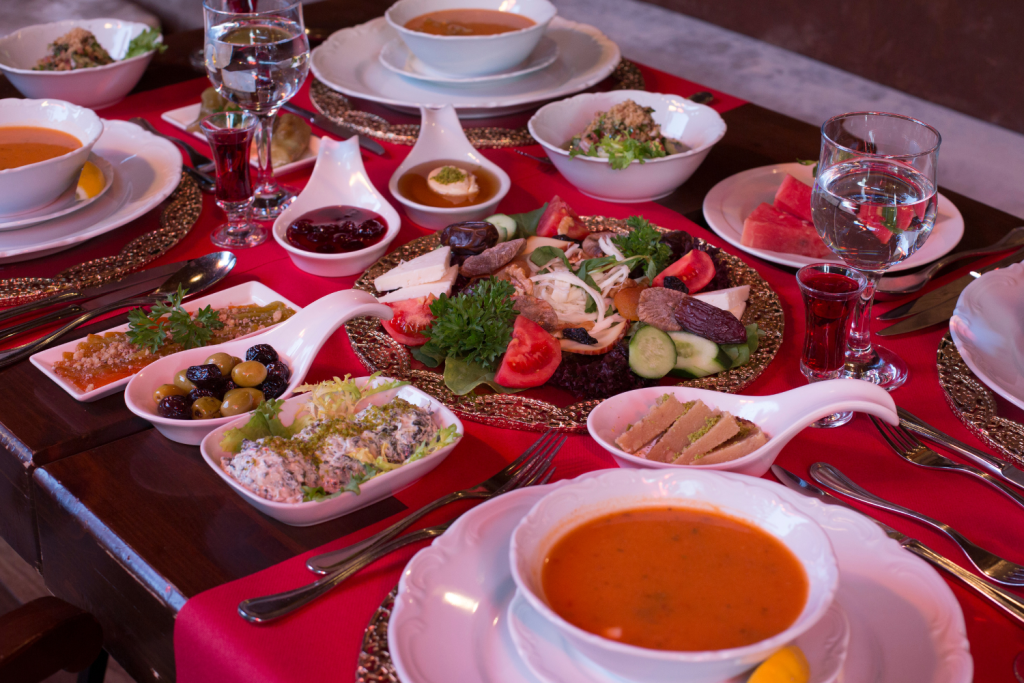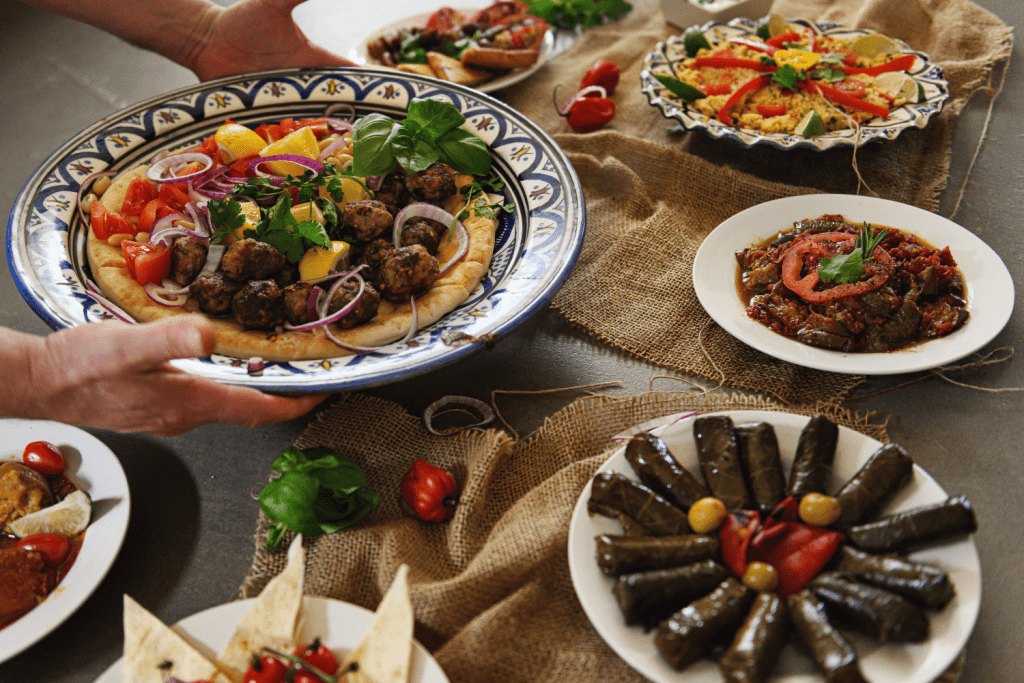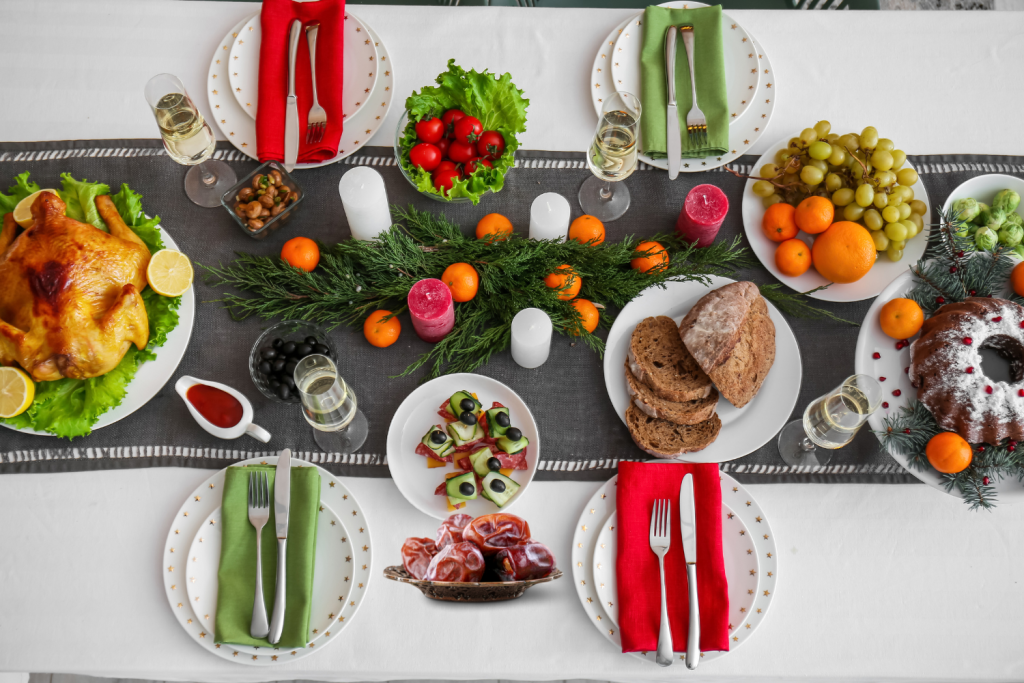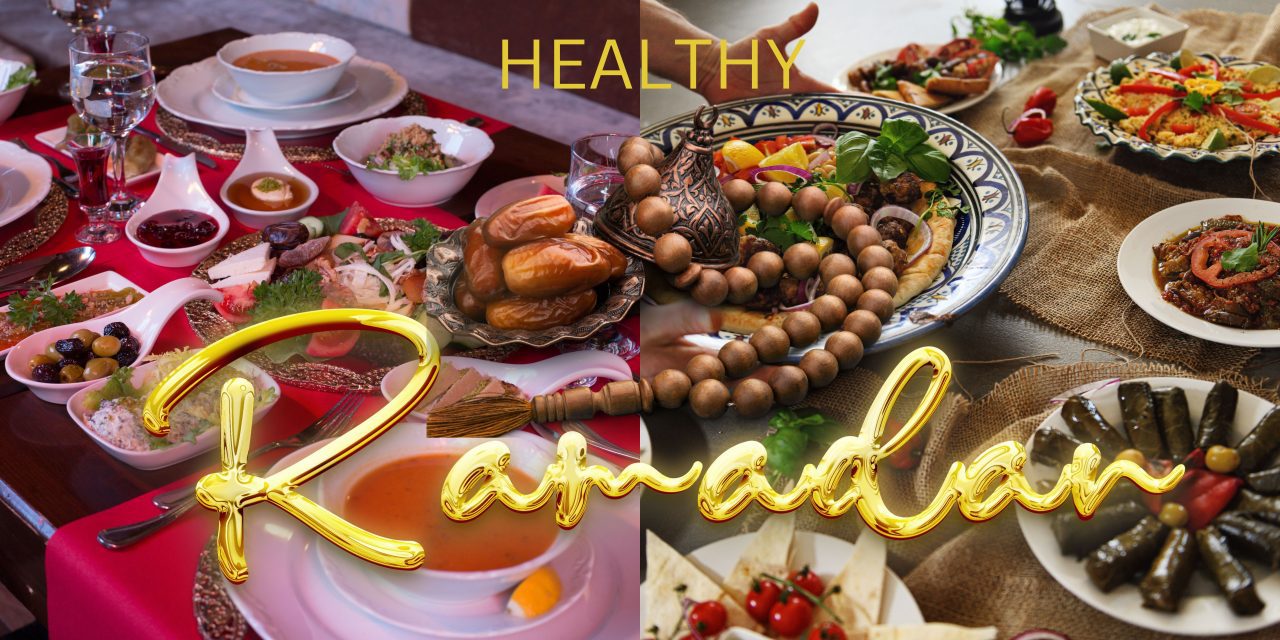Introduction
Healthy Ramadan is the priority of fasting. Ramadan is the month of fasting, prayer, reflection, and spiritual growth for Muslims all around the world. During this holy month, Muslims abstain from food and drink from dawn until sunset. Although fasting is obligatory for Muslims, it is also a time to focus on spiritual growth, self-reflection, and community.
One of the challenges that Muslims face during Ramadan is maintaining a healthy and balanced diet. With limited eating hours, it is easy to fall into the trap of eating unhealthy foods or overeating. However, with a little planning and preparation, it is possible to have a healthy and fulfilling Ramadan meal plan.
Table of Contents
- Importance of Healthy Eating during Ramadan
- Tips for Preparing Healthy Ramadan Meal Plan
- Planning Suhoor
1. Importance of Suhoor
2. Examples of Suhoor Meals - Planning Iftar
1. Importance of Iftar
2. Examples of Iftar Meals - Tips for Eating Out during Ramadan
- Conclusion
- FAQs
Importance of Healthy Eating during Ramadan

Maintaining a healthy and balanced diet during Ramadan is essential for several reasons. Firstly, it helps to maintain physical health, which is necessary to fast effectively. Secondly, it ensures that the body gets all the essential nutrients it needs to function correctly. Thirdly, it helps to avoid overeating and weight gain, which can be detrimental to health.
A healthy Ramadan meal plan should include foods that provide sustained energy throughout the day and keep the body hydrated. It should also include a variety of nutrient-dense foods to ensure that the body gets all the essential nutrients it needs.
Tips for Preparing Healthy Ramadan Meal Plan

a) Hydrate
Staying hydrated is essential during Ramadan, especially in hot weather. Drinking plenty of water and fluids between iftar and suhoor can help to prevent dehydration. Avoid drinking caffeine or sugary drinks, as these can dehydrate the body.
b) Focus on Nutrient-Dense Foods
Nutrient-dense foods are those that are high in essential nutrients such as vitamins, minerals, and fiber. These foods provide sustained energy throughout the day and keep the body feeling full for longer. Examples of nutrient-dense foods include fruits, vegetables, whole grains, lean protein sources, and healthy fats.
c) Incorporate Whole Grains
Whole grains are an essential part of a healthy Ramadan meal plan. They are high in fiber, which helps to regulate digestion and prevent constipation. Examples of whole grains include brown rice, quinoa, whole wheat bread, and oatmeal.
d) Add Lean Protein Sources
Protein is essential for maintaining muscle mass and repairing the body’s tissues. Lean protein sources include chicken, fish, turkey, tofu, and legumes.
e) Include Healthy Fats
Healthy fats are necessary for maintaining healthy skin and hair and keeping the body feeling full for longer. Examples of healthy fats include avocado, nuts, seeds, and olive oil.
f) Choose Low GI Foods
Low GI (Glycemic Index) foods are those that release energy slowly into the body, keeping the body feeling full for longer. Examples of low GI foods include sweet potatoes, lentils, and whole wheat bread.
g) Avoid Processed Foods
It is recommended to avoid processed foods as much as possible as they often contain high amounts of sugar, salt, and unhealthy fats. Instead, try to incorporate more whole foods into your diet such as fruits, vegetables, and lean proteins.
Planning Suhoor for Healthy Ramadan

a) Importance of Suhoor by Healthy Ramadan
Suhoor is the pre-dawn meal that Muslims eat before starting their fast. It is essential to have a nutritious suhoor meal to sustain energy levels throughout the day. Skipping suhoor can lead to fatigue, weakness, and dizziness during the day.
b) Examples of Suhoor Meals
Some healthy suhoor options include oatmeal with nuts and fruits, eggs with whole wheat toast, smoothies with fruits and vegetables, and Greek yogurt with fruits and granola.
Planning Iftar for Healthy Ramadan

a) Importance of Iftar by Healthy Ramadan
Iftar is the meal that Muslims eat to break their fast at sunset. It is crucial to have a balanced iftar meal to replenish energy levels and provide the body with essential nutrients.
b) Examples of Iftar Meals
Some healthy Iftar options include grilled chicken or fish with vegetables, lentil soup with whole wheat bread, vegetable stir-fry with brown rice, and salad with grilled tofu or chickpeas.
Tips for Eating Out during Healthy Ramadan
Eating out during Ramadan can be challenging, but it is possible to make healthy choices. Some tips for eating out include choosing grilled or baked options instead of fried, selecting salads or soups as a starter, and avoiding sugary drinks or desserts.
Conclusion of Healthy Ramadan
In conclusion, maintaining a healthy Ramadan meal plan is essential for physical and spiritual well-being. By following these tips and tricks, it is possible to have a nutritious and balanced meal plan during Ramadan. Remember to stay hydrated, focus on nutrient-dense foods, incorporate whole grains and lean protein sources, include healthy fats, choose low GI foods, and avoid processed foods. Also, plan suhoor and iftar meals and make healthy choices when eating out.
FAQs
Can I drink water during Ramadan?
No, Muslims abstain from food and drink from dawn until sunset during Ramadan.
Can I eat unhealthy foods during Ramadan?
It is essential to maintain a balanced and nutritious diet during Ramadan to ensure physical and spiritual well-being.
Can I skip Suhoor?
It is not recommended to skip Suhoor as it can lead to fatigue, weakness, and dizziness during the day.
Can I break my fast with sugary drinks or desserts?
It is recommended to break the fast with a balanced and nutritious meal, including lean protein sources, whole grains, vegetables, and fruits.
Can I eat out during Ramadan?
Yes, it is possible to make healthy choices when eating out during Ramadan by selecting grilled or baked options, choosing salads or soups as a starter, and avoiding sugary drinks or desserts.




Very interesting information!Perfect just what I was searching for!
Wohh precisely what I was looking for, appreciate it for putting up.
There is noticeably a bundle to know about this. I assume you made certain nice points in features also.
My brother recommended I might like this web site He was totally right This post actually made my day You cannt imagine just how much time I had spent for this information Thanks
Can you be more specific about the content of your article? After reading it, I still have some doubts. Hope you can help me.
Fantastic site Lots of helpful information here I am sending it to some friends ans additionally sharing in delicious And of course thanks for your effort
Thank you for the good writeup It in fact was a amusement account it Look advanced to far added agreeable from you However how could we communicate
My brother suggested I might like this website He was totally right This post actually made my day You cannt imagine just how much time I had spent for this information Thanks
of course like your website but you have to check the spelling on several of your posts A number of them are rife with spelling issues and I in finding it very troublesome to inform the reality on the other hand I will certainly come back again
Ive read several just right stuff here Certainly price bookmarking for revisiting I wonder how a lot effort you place to create this kind of great informative website
Pink Withney Good post! We will be linking to this particularly great post on our site. Keep up the great writing
Wow, superb blog layout! How long have you been blogging for? you made blogging look easy. The overall look of your site is great, let alone the content!
Hello Neat post Theres an issue together with your site in internet explorer would check this IE still is the marketplace chief and a large element of other folks will leave out your magnificent writing due to this problem
Hello my friend! I want to say that this post is amazing, great written and come with approximately all important infos. I would like to see more posts like this .
I was truly impressed by how deeply you delved into this topic. The hard work hasn’t gone unnoticed!
I learned a lot, and now I’m curious about what else you could teach me. The intelligence is as captivating as The prose.
Hi there just wanted to give you a quick heads up. The words in your content seem to be running off the screen in Ie. I’m not sure if this is a formatting issue or something to do with browser compatibility but I figured I’d post to let you know. The style and design look great though! Hope you get the issue resolved soon. Kudos
Hello i think that i saw you visited my weblog so i came to Return the favore Im trying to find things to improve my web siteI suppose its ok to use some of your ideas
The blend of informative and entertaining content is perfect. I enjoyed every word.
Thank you for consistently producing such high-high quality content.
Glad I stumbled upon this article. It’s like finding a $20 bill in a pair of old jeans.
Can you be more specific about the content of your article? After reading it, I still have some doubts. Hope you can help me.